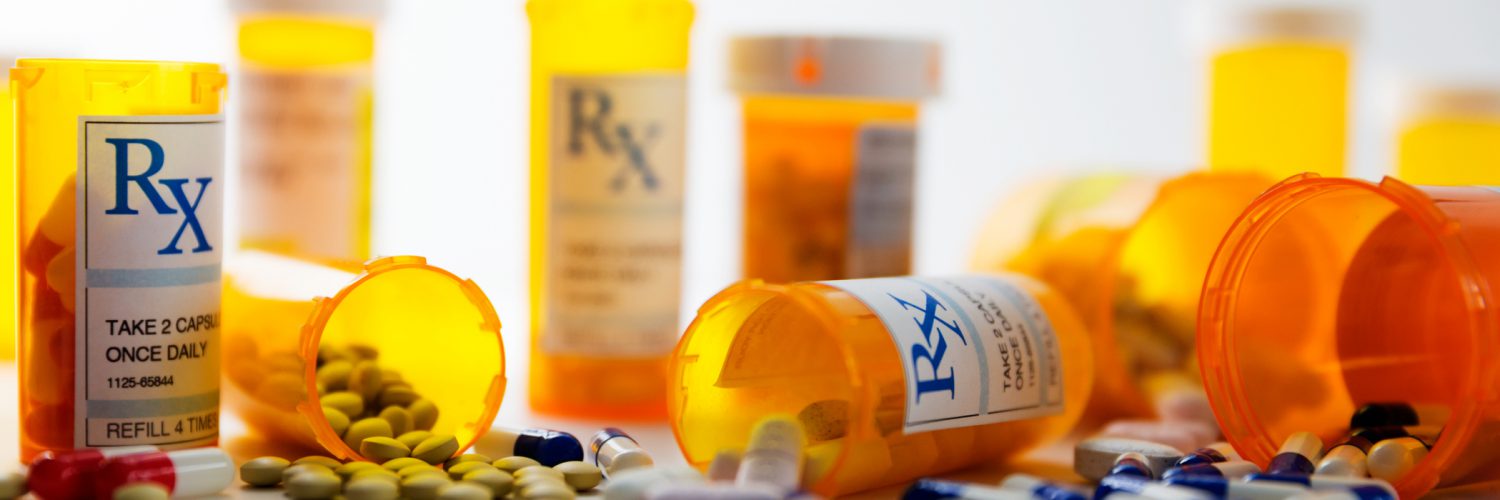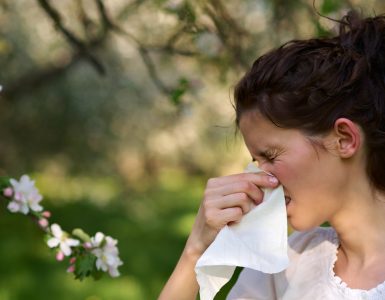The rise in certain prescriptions for— and easier access to— pain relievers like opioids (Vicodin, OxyContin or Percocet), stimulants (Adderall, Ritalin) and sedatives/depressants used to treat anxiety and sleep disorders (Xanax, Valium) has led to more ER visits because of accidental overdoses, and more admissions to treatment programs for drug addictions. When taken without a prescription – or used for an unintended purpose—these drugs can easily become addictive, even deadly. Your chance of getting addicted can be affected by your age, biological make-up, and whether addiction runs in your family.
Preventing serious problems starts when your health professional prescribes the medication. Here are good rules to follow:
- Tell your doctor about any history of substance abuse and about all other prescriptions, over-the-counter (OTC) medicines, and supplements you’re taking.
- Ask about potential interactions. If your provider gives you samples, make sure he or she checks that there will be no potential interactions with your other medications. Mixing opioids, sedatives or stimulants with other drugs, OTC antihistamines, decongestants, or alcohol can be highly dangerous.
- Tell your provider if you have any allergies or adverse reactions to any medications.
- Ask your provider if you need to avoid any types of food, drinks or activities while taking the medication.
Once you leave the doctor’s office, stick to these safety measures:
- Follow the directions on the medication’s label or from the pharmacist. Read the label every time you take a dose to make sure you have the right drug and the right dose.
- Don’t stop, increase or reduce your medication without talking to your doctor.
- Never give your medication to someone else.
- Store medications safely in their original containers. Keep in mind that many teen overdoses arise from easy access to their parents’ medications. Prescription drugs like opioids, stimulants and depressants should be locked away.
Remember to discard unused or expired medications. Here’s how:
- Ask your pharmacy or local government if they offer a medicine take-back program in your community where you can return unused medication that will then be properly disposed of.
- If your community does not have a take-back program, there are certain medications the FDA recommends flushing—and opioids, for example, are on this list. Consult this list from the FDA.
- If there is not a take-back program near you and your medication is not able to be flushed, you can dispose of it in the trash. First, remove the medication from the bottle without crushing it. Mix pills with dirt, kitty litter or used coffee grounds in a sealed plastic bag and throw the bag out with your regular trash. Remove or scratch out all identifying or personal information on the empty prescription bottle before recycling it or throwing it away.
Know the signs of addiction
For example, have you obtained prescriptions for the same drug from several doctors at the same time? Have you ever tried to stop taking the drug and failed? Do you feel irritable or anxious if you don’t take the drug? If you answered yes to any of the above, you may be in the beginning stages of addiction and it’s crucial to talk to your doctor as soon as possible.
It’s especially important get help at the first sign of opioid abuse. These powerful painkillers are highly addictive and easy to overmedicate and misuse. Anyone can become addicted to opioids known to create a constant need to take the drug, which can result in overdose or even death. Spotting these beginning signs of abuse early can lead to successful interventions:
- Nodding off during a conversation, meeting, class or dinner
- Inability to focus. Poor concentration can result in impaired performance.
- Loss of relationships. People misusing painkillers may become increasingly isolated or choose to be with others who have similar addictions.
- Physical changes. Signs include small pupils, itching or flushed skin, an unkempt appearance, confusion, slurred speech, or frequent flu-like symptoms — nausea, fever and headache can be signs of withdrawal when someone can’t get more of the drug.
If you’re struggling with dependency on a prescription medication, talk to your doctor for help. Or, if a loved one has medication dependency issues, encourage them to talk to their doctor.
You can also call the Substance Abuse and Mental Health Service Administration (SAMHSA) 24/7 hotline: 1-800-662-HELP (4357).



